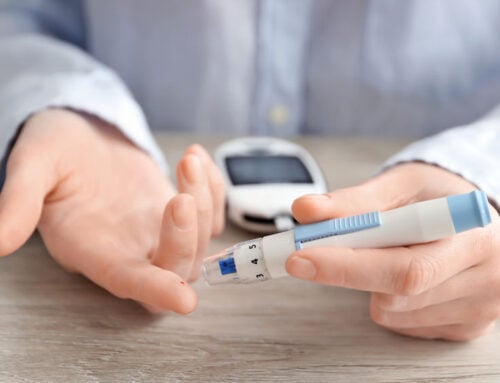Managing A Diabetes Diagnosis
When a person is diagnosed with diabetes, managing blood sugar becomes extremely important. If blood sugar gets out of control, diabetics run the risk of developing other serious health conditions. One of these conditions is diabetic retinopathy. This disease can significantly damage a person’s vision if left untreated. In addition to managing blood sugar, diabetics should also schedule regular vision tests to mitigate risk.

What is retinopathy?
People with type 1 or type 2 diabetes are at risk for developing diabetic retinopathy. This is a condition that affects one or both of the eyes. The damage to the retina can cause dark spots in the vision, colorblindness, blurred vision, and, if left untreated, eventual vision loss. While the condition can develop in anyone, people with diabetes can help decrease the risk by carefully controlling blood sugar.
Early signs
Retinopathy occurs when uncontrolled blood sugar blocks the blood vessels that lead to the retina. In early diabetic retinopathy, the blood vessel walls in the retina begin to decrease in strength. When the condition becomes more advanced, blood vessels completely close off. This stage can lead to retinal detachment and glaucoma. Many people with diabetes have no symptoms during the early stages of diabetic retinopathy. Because of this, seeing an eye doctor regularly is extremely important.
How often to see the eye doctor
People with diabetes should see an ophthalmologist at least once every year. This appointment should be made even if patients have no symptoms. Certain factors can increase the risk for diabetic retinopathy. Some of these include pregnancy, tobacco use, and other health conditions such as high blood pressure or cholesterol. In these cases, a healthcare provider may recommend seeing an eye doctor more than once per year.
Preventive steps
Patients with diabetes can take extra steps to prevent the development of diabetic retinopathy. Some of these preventive measures include:
- Monitoring blood sugar daily
- Exercising moderately for at least 150 minutes per week
- Testing A1C regularly
- Quitting smoking
- Keeping blood pressure and cholesterol in a healthy range
Speak with a healthcare provider
While diabetic retinopathy is a concern for people with diabetes, there are steps that can help minimize risk. People with diabetes should speak with a healthcare provider regarding strategies to help manage the condition.




